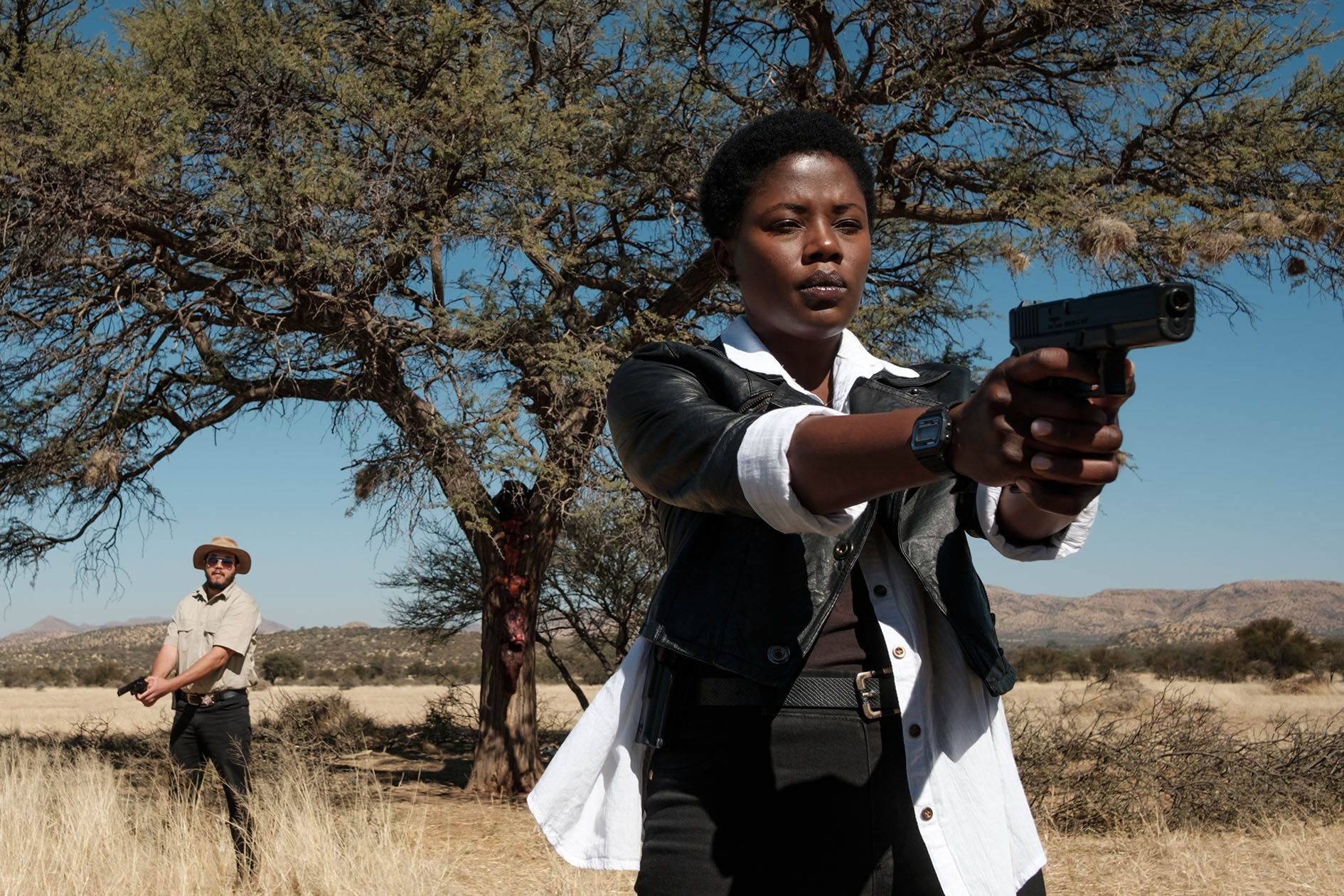Movie premiere in Namibia! In »Under the Hanging Tree«, director Perivi Katjavivi approaches the trauma of the German colonial era – from a Namibian perspective. I had the possibility to meet Kaprivi and write about the film for the German news magazine “Der Spiegel”. The original article is behind a paywall. Here is an » English translation.
The film unfolds in quiet scenes and long takes. The camera hardly moves. The acting of Girley Jazama and David Ndjavera is poignant, in my view. »Under The Hanging Tree« is a masterpiece of contemplative cinema, a spiritual puzzle for self-discovery. It aims to find one’s own pace for visualizing the past through deceleration, I wrote in the article.
For Katjavivi, who has Herero ancestors, it was crucial to open up a nuanced approach to history that goes beyond the culture of division, hatred or the destruction of things. “There is a force out there that wants to scorch the earth. Whereas every spiritual tradition tells you to go deeper within,” he explains. The important thing for him, he says, is to empower individuals to peel away many layers and find deeper within themselves. “I’d like to make cinema which looks inwards!”
While I am here in Windhoek my impression was German colonialism has permeated almost everything. It has left its mark in buildings, monuments and street names, and not just in the cityscape. Above all, the German genocide of the Nama and Herero people lives on in many family stories of land theft, exploitation and rape. An open wound lurks around every corner in Windhoek. On the nearby hill stands the Alte Feste. In 1904, the Germans built one of their first concentration camps next to the fort. Today, Windhoek High School stands on the same site. Where once Nama and Herero did forced labor, today young people in uniform sit in the classroom and rugby is played on the neighboring field.
How is it possible to come to terms with the past? Especially in traumatized places, where the line between humility and humiliation is so close. From a German perspective, how can one ever say it’s over?
I think it, it would great if this film reaches an audience in Germany and find a distribution. Perhaps, one day, there is the possibility of not just one history, but the writing of histories that have many perspectives and can never be closed. Nothing in the past is over, because each time bears the traces of another. Wouldn’t that make a living memory possible?



